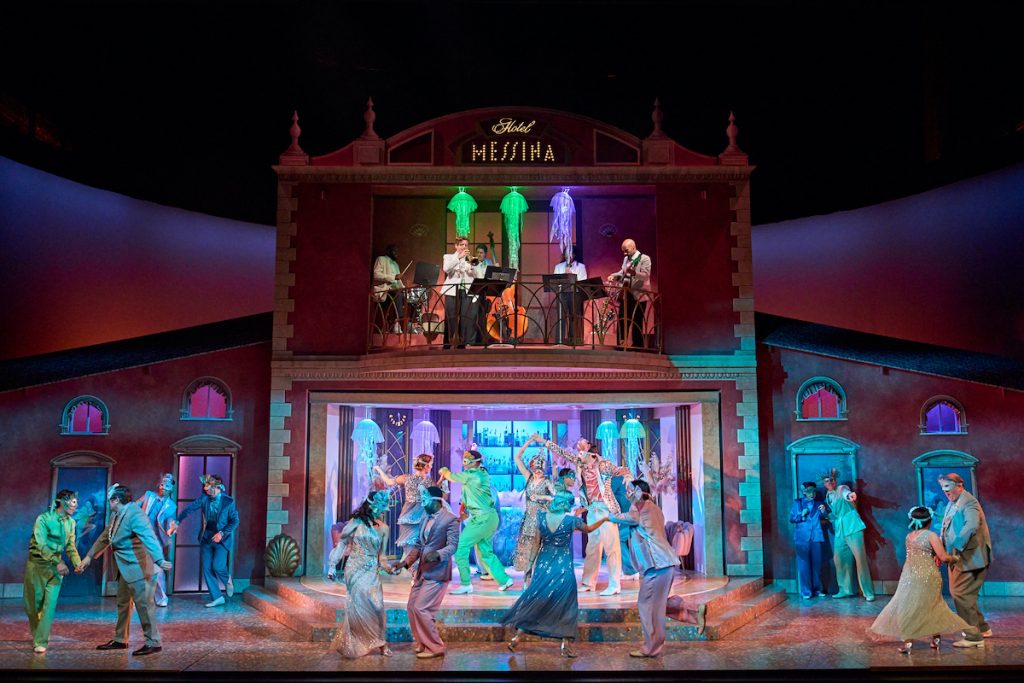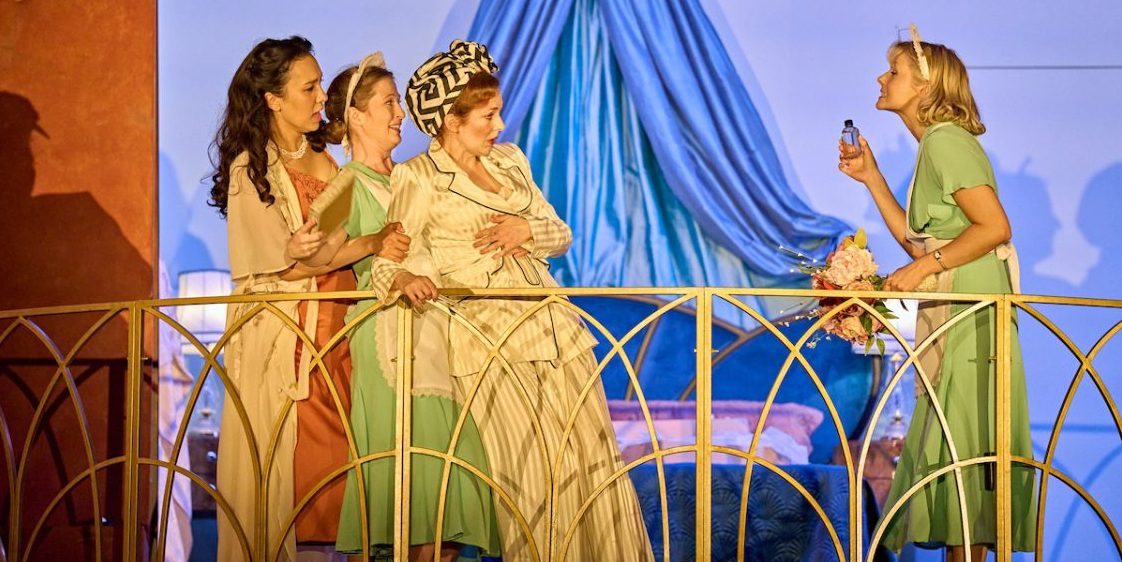The auditorium was packed on the night I attended (and it was not press night),. The laughter and cheering from the audience were a clear indication that creative direction, with minor tweaking, can dress a great rom-com in a style that attracts and delights all groups of people.
A live jazz band playing on the upper balcony above the semi-circular bay of a hotel is a prelude to a fresh and effervescent take on Shakespeare’s 1598’s comedy Much Ado About Nothing.
The period, as stated in the programme, is ‘an imagined past‘. Judging by the costumes and the numerous hats worn by the leading protagonist, Beatrice (Katherine Parkinson), the setting is approximately the 1930s or possibly early 1940s, but then, I am not a hat expert. The characters have been bestowed titles befitting the period and the setting.

The location is Sicily, not far from Messina, at ‘Hotel Messina’ managed by Leonato (Rufus Wright), and his wife Antonia (Wendy Kweh). They are informed of the imminent arrival of General Don Pedro (Ashley Zhangazha), with a few soldiers of the regiment, including Claudio (Eben Figueiredo) and Benedick (John Heffernan), the two distinguished soldiers, and Pedro’s illegitimate brother John.
In an ebullient atmosphere, love at first sight takes place when Claudio, the young soldier, confides in his general, Don Pedro, his love for Leonato’s daughter, Hero (Ioanna Kimbook). Not much is exchanged between Claudio and Hero, yet a wedding date has been fixed. Kimbrook’s Hero bears the hallmarks of youth and innocence. She subtly projects her character’s vulnerability. Yet, when falsely accused of infidelity, she forcefully protests her innocence. Figueiredo’s Claudio convincingly depicts the shallow, inexperienced, feeble, and gullible young man who is easily swayed to accept serious allegations levelled against the woman he claimed he loved and was about to wed.
The leading couple in this comedy is the two Bs – Beatrice and Benedict. Both entertain verbal swordplay and exchange many witty insults. John Heffernan’s Benedict is funny and sharp. Katherine Parkinson’s Beatrice has a soigné appearance and quick sharp wit. She acts with panache, adjusting her attire to every occasion. The two give good performances that sparkle with intelligence, wit, and mischief. Once they stop their verbal attacks on one another and share compassion for Hero, the couple expresses mutual understanding and much affection.
Simon Goodwin skilfully teases out issues raised by the play, yet delightfully maintains the light comic relief needed following Hero’s potential ruin. The brilliant scene of the watchmen with the Head of Security, Dogberry, superb comic performance by David Fynn, is in contrast to the genuinly moving scene of Hero’s utter humiliation on her wedding day. Fynn and the rest of his team lavished the scene with slapsticks that contrasted brilliantly the devastating consequences, had Don John’s vile scheme succeeded. Goodwin’s production alludes the power invested in the simpletons as opposed to those in power.
This is a thoroughly enjoyable production and I was very impressed by the enthusiasm it generated among the wide spectrum of audience, young and not-so-young that was present on the night that I attended.

